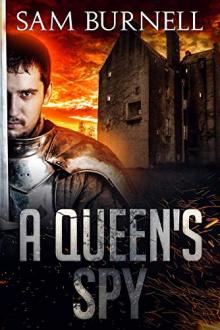Genre - History. You are on the page - 10

on ennemi malheureux.«Et moi aussi, dit-il, d'un ton de bonne humeur, on m'a mis en demi-solde; mais... avec votre demi-solde vous n'avez pas de quoi vous acheter du tabac. Tenez, caporal.» Et il essaya de faire entrer la pièce d'or dans la main fermée que le jeune homme appuyait sur le rebord de la yole. Le jeune Corse rougit, se redressa, se mordit les lèvres, et paraissait disposé à répondre avec emportement, quand tout à coup, changeant d'expression, il éclata de rire. Le colonel, sa pièce

ce Christians," those spurious Christians who become converted in return for being provided with rice, are just those who profit by these differences of opinion, and who, with timely lapses from grace, are said to succeed in being converted in turn by all the missions from the Augustins to the Quakers.Every visitor to Hankow and to all other open ports, who is a supporter of missionary effort, is pleased to find that his preconceived notions as to the hardships and discomforts of the open

ched its climax with the insults, and the lethargic spirit woke to life. His sensitiveness, the chief trait of the native, was touched, and while he had had the forbearance to suffer and die under a foreign flag, he had it not when they whom he served repaid his sacrifices with insults and jests. Then he began to study himself and to realize his misfortune. Those who had not expected this result, like all despotic masters, regarded as a wrong every complaint, every protest, and punished it with

ine finally recovered, but he was shockingly disfigured for life. He afterwards told how he came upon the tracks of Broadus, and on reaching the spot where Broadus had received his death wound, he was suddenly attacked by a huge she-bear that was followed by two small cubs. The bear had evidently been severely wounded by Broadus and was in a terrible rage. She seized Jabine before he could turn to flee, and falling with her whole weight upon his body and chest, began biting his face. He soon

the murder was not lacking.My narrative in "The Night of Hate" is admittedly a purely theoretical account of the crime. But it is closely based upon all the known facts of incidence and of character; and if there is nothing in the surviving records that will absolutely support it, neither is there anything that can absolutely refute it. In "The Night of Masquerade" I am guilty of quite arbitrarily discovering a reason to explain the mystery of Baron Bjelke's sudden change
